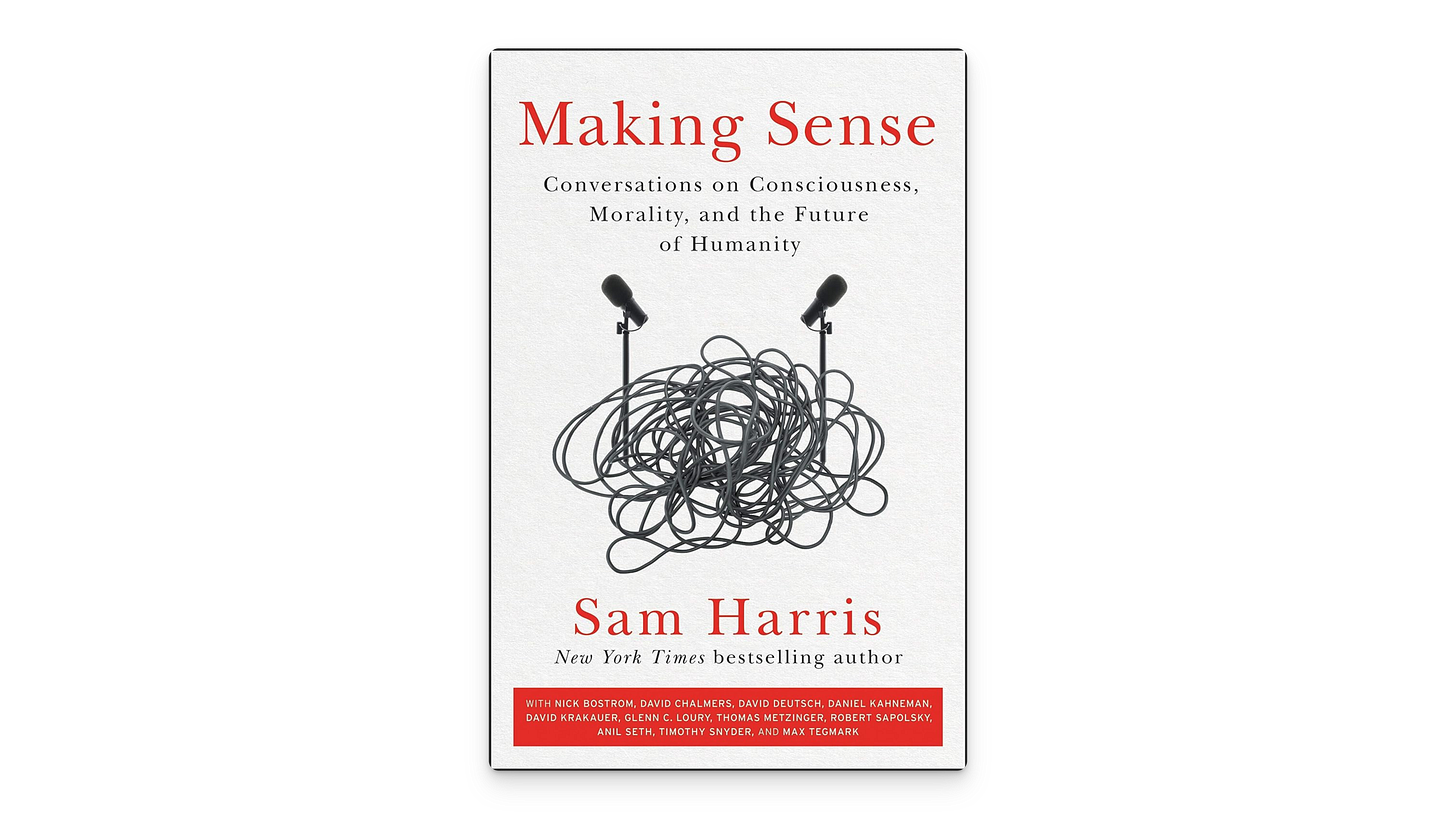by Sam Harris
Making Sense (2020) explores pivotal conversations addressing life's profound queries: the essence of consciousness, the evolution of despotism, the history of racial issues, the enigmas of the cosmos, and the complexities of artificial intelligence.
Despite the diversity of topics, the book’s core objective is to decipher our cognitive processes and leverage this understanding to forge an optimal world for all.
About the author
Sam Harris, a neuroscientist, philosopher, and the voice behind the acclaimed Making Sense podcast, also developed the Waking Up app, which introduces meditation through a contemporary, science-based approach.
His portfolio of influential and best-selling books includes titles like The End of Faith, The Moral Landscape, and Waking Up.
Exploring the Boundless Terrain of Mind, History, and Cosmos
Strolling across a university campus, one notices that each department is nestled within its own building, symbolizing the segregation of academic disciplines. Off campus, the contrast is stark: reality does not adhere to these academic boundaries.
To genuinely comprehend the world and our minds, embracing interdisciplinary thinking is crucial. It’s imperative to scrutinize, reassess, and refine the prevailing ideas shaping our society. Specifically, it’s essential to challenge detrimental notions, supplant them with superior ones, and craft a better future for all.
These chapters encapsulate the extensive topics featured in the Making Sense podcast, where Sam Harris engages in discussions with various experts. We’ll navigate subjects ranging from consciousness and personal identity to authoritarianism, artificial intelligence, and more.
Throughout these discussions, you’ll uncover:
the potential consciousness of thermostats;
the deceptive nature of free will; and
the mathematical basis of human existence.
Unraveling the Enigma of Conscious Awareness
Let’s start with a seemingly straightforward question that turns out to be incredibly complex: What exactly is consciousness?
Often described as "sentience," "awareness," "subjectivity," or "experience," these terms essentially circle back to the concept of consciousness itself without truly defining it.
A more insightful description comes from Thomas Nagel’s 1974 essay, “What Is It Like to Be a Bat?” Nagel proposes that consciousness involves a unique internal perspective, asserting that there's something it feels like to be a specific organism, like a human, but not for inanimate objects, such as a glass of water.
However, merely defining consciousness is just the initial step in truly grasping its essence.
The evolutionary purpose of consciousness remains elusive.
In the 1990s, philosopher David Chalmers introduced what is now known as the hard problem of consciousness, questioning why and how consciousness arises. Why do we have a subjective experience of the world? What evolutionary purpose does this serve?
Chalmers distinguishes this from the "easy problems" of consciousness, which concern our behavioral and cognitive functions that are more directly linked to brain mechanics. For example, the process of vision involves converting light energy into neurochemical reactions and mapping this onto the brain's visual cortex. These processes are understandable, yet they don't explain the deeper, subjective nature of conscious experience—the hard problem.
One theory suggests that consciousness might simply be an epiphenomenon—an incidental byproduct of our brain's extensive processing capabilities, akin to smoke from a steam engine. It exists as part of the system but isn’t the driving force.
Alternatively, neuroscientist Anil Seth offers a different perspective, suggesting that consciousness helps the brain maintain and regulate the body's internal state. Our conscious experiences, marked by emotions, guide our responses to environmental stimuli. For instance, disgust might arise from encountering something potentially harmful, like spoiled food or an infection, prompting behaviors that protect our well-being.
The question of whether humans are unique in possessing consciousness still stands, underpinning the ongoing mystery of its evolutionary origins.
Keep reading with a 7-day free trial
Subscribe to The Book Summaries to keep reading this post and get 7 days of free access to the full post archives.



